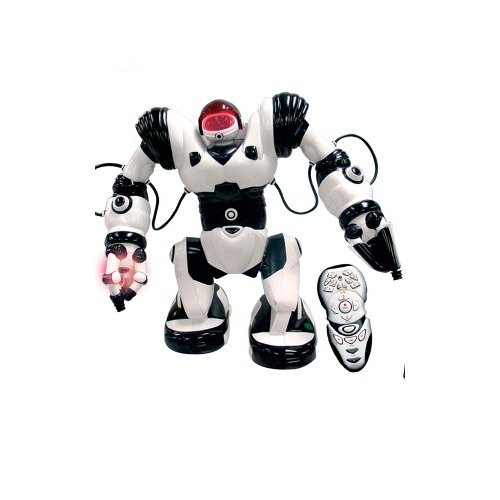Platforms

This little fella has sat on my desk for two years now. It caused a splash on release for being the first truly affordable walking robot. All of its limbs can be articulated, and it can be programmed to perform sequences of actions. But perhaps the most interesting thing about it is its circuitry, which is readily accessible and clearly labeled, which makes it perfect for hacking.
A growing community of hackers have devoted themselves to adding new functionality to the robot. Some hacks have added a live video camera, headlights, a coil gun, speech synthesis, a flamethrower and more.
These sorts of developments aren’t constrained to toy robots. In fact, I’d argue that user customisation is becoming essential for products. This has been apparent in the web world for a few years now, with the advent of APIs which make apps more extensible. The reasons are clear: companies are racing to become platforms, deeply embedded in the wider community. This makes them part of a living, breathing ecosystem, rather than discreet entities.
But arguably, extensibility is even more important in the world of hardware. If a product can be extended to have more uses then it prolongs its useful life, which ultimately leads to less waste. Besides from the environmental concerns, there are also strong business reasons to build a product this way. People are more likely to purchase a product if there is a strong user community associated with it, and if a user customises a product, then they’re more likely to show it to their friends and family.
I believe that this will lead to a race towards ‘platform hardware’, where a single product supports a broad range of different customer requirements. This is possible to a large extent through the fusion of software and hardware. For instance, I bought an iPod touch a year ago, and because of a series of software updates, and the success of the Appstore, it’s now better than when I bought it. Similarly, a Nintendo Wii only gets better with time as more games and peripherals are released for it. Hence, the incentive to throw these objects away diminishes, which is why the Robosapien still sits on my shelf, and the iPod is still in my pocket, after two years. In a world of throw away products and mass consumption, that is a wonderful thing.